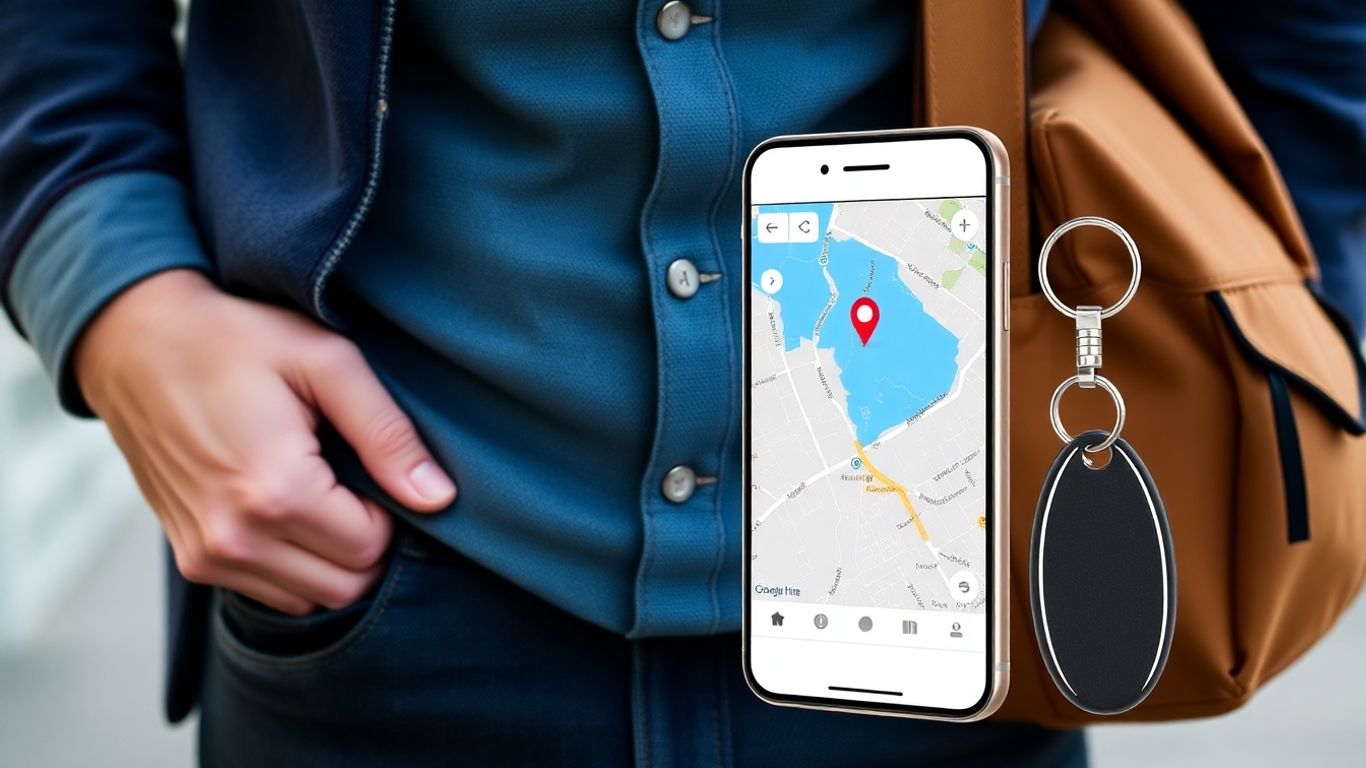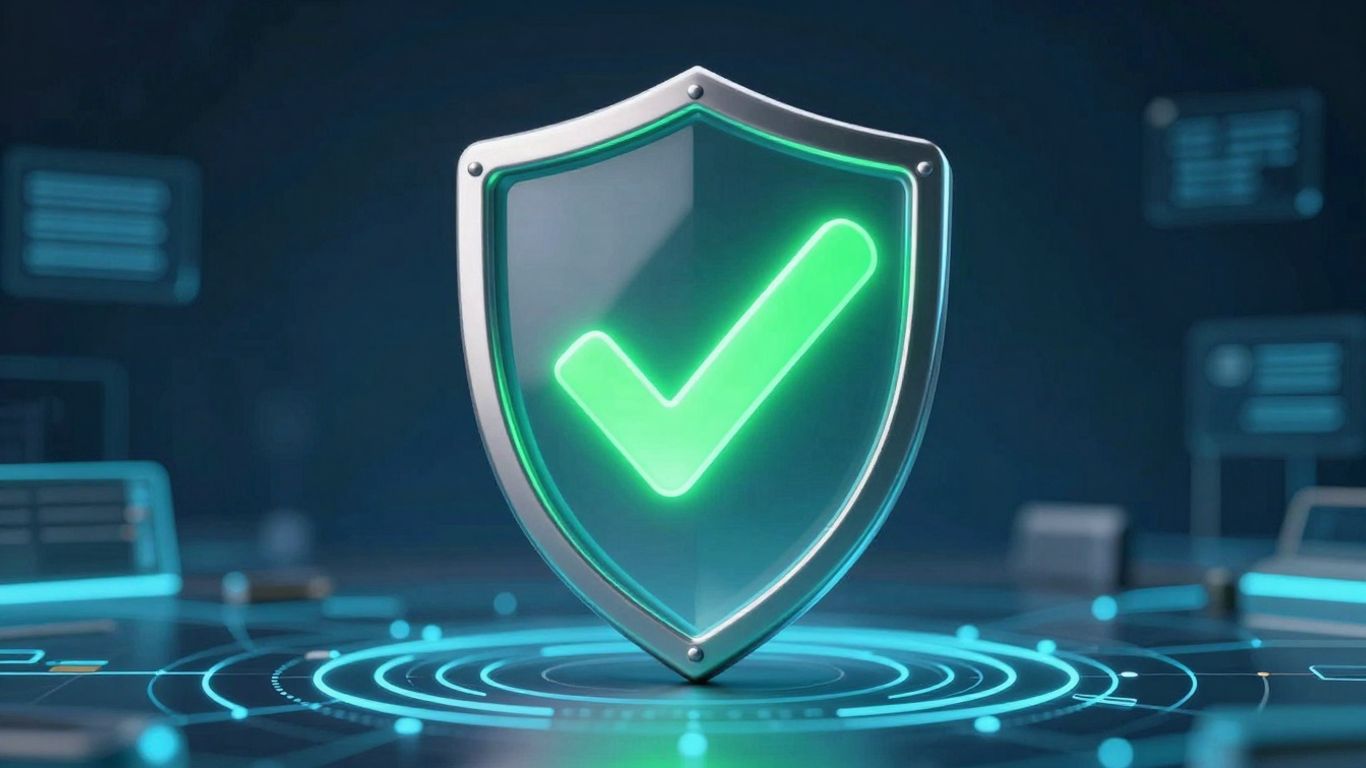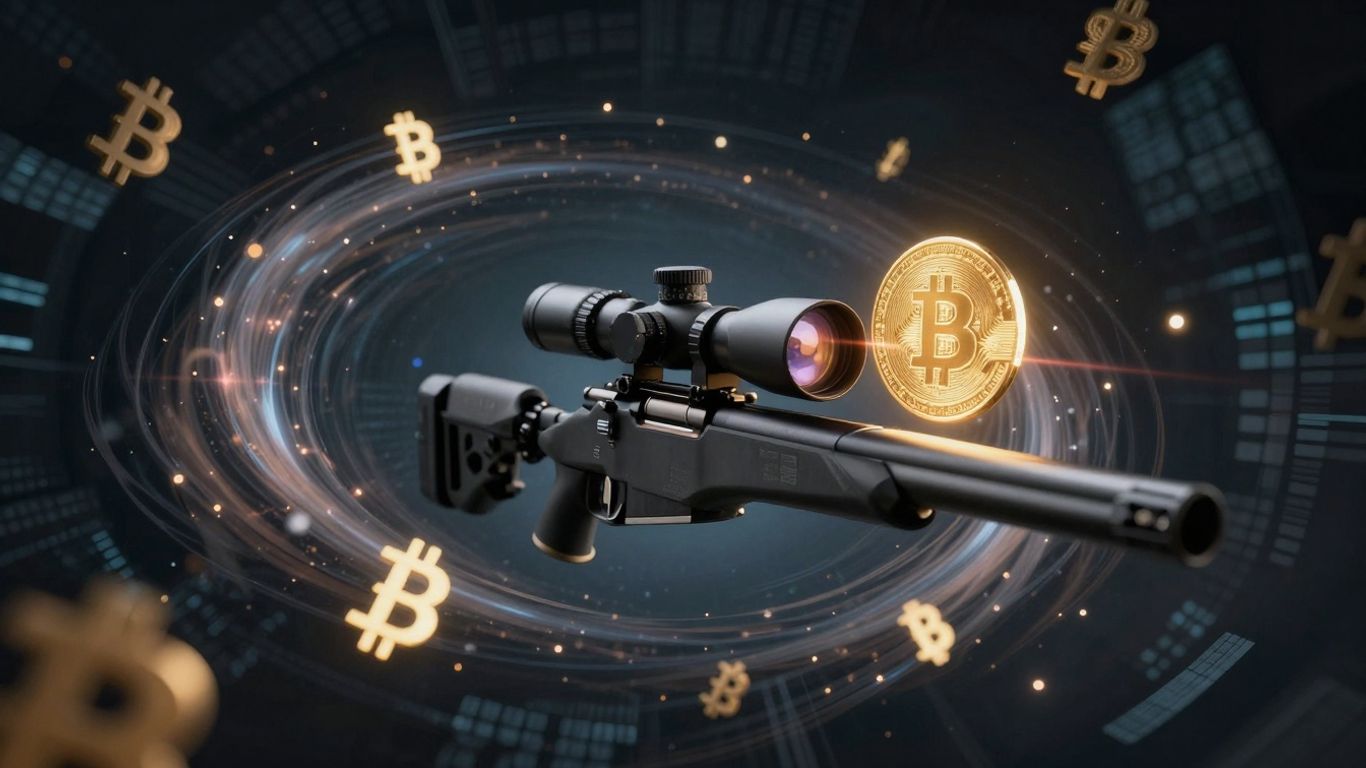[ newsletter ]
Stay ahead of Web3 threats—subscribe to our newsletter for the latest in blockchain security insights and updates.
Thank you! Your submission has been received!
Oops! Something went wrong. Please try again.
Lost your wallet? Learn how to track a wallet effectively by retracing steps, contacting establishments, and using tech solutions. Get it back fast!





Losing your wallet can feel like a total disaster. Suddenly, you're not just out of cash, but you're also worried about your cards and personal info. It's a stressful situation, for sure. But don't panic just yet. There are definitely steps you can take to try and get it back. This guide will walk you through how to track a wallet, from retracing your steps to using some pretty neat tech.
Okay, so the panic has set in. Your wallet is gone. Before you start tearing your hair out, let's take a deep breath and think logically. Most of the time, a lost wallet isn't truly lost, it's just misplaced. The first step is to go back through your recent movements in your mind. The key is to be systematic, not frantic.
Start in one room and work your way through it methodically. Don't just glance; really look. Move things around. Check under mail piles, inside bags you might have dropped there, and even in the pockets of the clothes you were wearing earlier. Sometimes, it's just hiding in plain sight.
Don't turn your house upside down. A methodical search is more effective than a chaotic one, which can make the process worse if you have to go through each room again.
Think about the last place you remember using your wallet. Focus on the context of what you were doing and what you were wearing at that time. It's easier to remember which coat and pants you wore than where you last saw an item you weren't even looking for. If you were shopping, eating, or at an appointment, head back there if possible.
This might sound obvious, but it's amazing how often a wallet can slip into an unexpected pocket or bag. Go through everything you've used recently. If you have multiple bags, check them all, even ones you haven't used in a few days. Sometimes, a wallet can end up in a bag you only use for specific occasions.

Okay, so you've done the initial sweep of your own space and retraced your steps. Now it's time to cast a wider net. This is where you tap into the systems and people who might have already found your lost wallet or can help spread the word.
This is probably the most straightforward step. Think about every place you've been recently. Did you grab a coffee? Eat at a restaurant? Ride public transport? Shop at a store? Each of these places likely has a lost and found. Don't just assume they won't have it; it's surprising how often items end up in the right hands.
It's a good idea to have a rough idea of when you might have lost it. This helps the staff narrow down their search and makes it easier for them to check if anything matching your description has been turned in.
In today's connected world, social media can be a surprisingly effective tool. Local Facebook groups, neighborhood forums, or even a quick post on your own profile can get the word out. People are often willing to help a neighbor in need, and someone might have found your wallet and posted about it, or they might see your post and keep an eye out.
While the police might not be able to actively search for your wallet, filing a report is a smart move, especially if you suspect it might have been stolen or if it contains important identification like a driver's license or passport. A police report can be useful later if any fraudulent activity occurs using your lost identification.
Okay, so you've realized your wallet is gone. Take a deep breath. Panicking won't help, but acting fast will. This is the part where you need to be really proactive to stop any potential trouble before it starts. Think of it like damage control for your finances and identity.
This is super important. If you have any bank cards, credit cards, or even checks in your wallet, you need to call those places immediately. Most banks and credit card companies have a 24-hour line for lost or stolen cards. You can often lock your cards right from their mobile app too, which is a good first step. When you call, tell them your cards are missing. They'll cancel the old ones and send you new ones with different numbers. This stops anyone from using your cards for unauthorized purchases. Federal law actually limits your liability for fraudulent charges if you report the loss quickly, so don't delay this step. It's a good idea to have a list of everything in your wallet, like card numbers and expiration dates, before you lose it, but if you don't, just do your best to recall what you had. This is a good time to check your recent transactions for anything suspicious.
When you discover your wallet is missing, first take a moment to breathe deeply and calm yourself to ensure clear thinking. Begin by retracing your steps from the day and then proceed with protective measures. Follow these steps:
Even after you've contacted your banks and credit card companies, it's still a good idea to keep an eye on your accounts. Check your bank statements and credit card activity online regularly for a few weeks. Look for any transactions you don't recognize. If you see anything strange, report it to the financial institution right away. This vigilance can help catch any fraudulent activity that might slip through the cracks. It's also a good time to consider getting some extra protection for your cards, like RFID blocking sleeves [b08e].
Losing your wallet can feel overwhelming, but remember that taking these immediate protective steps is your best defense against potential identity theft and financial fraud. Stay calm, be methodical, and act swiftly to secure your information and accounts.

Losing your wallet is a real pain, and honestly, it happens to a lot of us. But the good news is, technology has come a long way in helping us find those misplaced essentials. We're talking about those little gadgets that can give you some serious peace of mind.
These aren't magic wands, but they're pretty close. There are a bunch of these things out there now, and they're getting pretty slick. Some are designed to be super thin, like a credit card, so they just slide right into your wallet without adding bulk. Others might be a bit more noticeable, like a small disc. Here's a quick look at what to expect:
Most wallet trackers work by using a combination of technologies. Think Bluetooth for when your wallet is nearby – like if it slipped between the couch cushions. This usually has a range of a few hundred feet. Then there's the more impressive part: the global lost-and-found network. This network uses other people's devices, anonymously, to help pinpoint your wallet's location, even if it's miles away. It's like a massive, crowd-sourced search party for your wallet.
The accuracy can be surprisingly good, giving you a map right on your smartphone. It's pretty amazing when you think about it – a whole community of devices working together to help you out.
Services like Apple's Find My network or Google's Find Hub act as a backbone for many trackers. If your wallet is lost out in the wild, these networks can help. Other people's phones or compatible devices that pass by your lost wallet can anonymously report its location. You'll typically pair the tracker with an app on your smartphone. This app will show you the last known location on a map. Many trackers also have a "ring" feature, so if your wallet is just hiding under some papers at home, you can make the tracker beep loudly to find it quickly. It's super easy to set up, usually just a matter of waking up the device and adding it to your phone's app.
Losing your wallet is a real pain, right? It's not just about the cash inside; it's the hassle of replacing cards, the worry about your ID, and the general feeling of being disorganized. But hey, it happens to the best of us. The good news is, we can get smarter about keeping track of our essentials. Let's talk about how to make sure this doesn't become a regular occurrence.
This might sound super simple, but it's probably the most effective trick in the book. Pick a designated spot for your wallet and stick to it. Think of it like a dog's bed, but for your wallet. When you get home, put it there. Every. Single. Time. This could be a specific bowl on your entryway table, a hook by the door, or even a particular drawer in your dresser. The idea is to create a habit so automatic that you don't even have to think about it. When you're rushing out the door, you'll know exactly where to grab it from, and when you come back, you'll know exactly where to put it. It cuts down on those frantic searches.
For many people, the back pocket feels like the natural place for a wallet. However, this can make it an easy target for pickpockets, especially in crowded areas. Switching to a front pocket can make it much harder for someone to take your wallet without you noticing. It also tends to keep the wallet flatter, which can be more comfortable if you sit on it regularly.
These little gadgets have become incredibly popular for a reason. Small trackers, like AirTags or Tile trackers, can be slipped right into a wallet. If you misplace it, you can use an app on your phone to make the tracker beep loudly, helping you find it even if it's buried under couch cushions. Some even use a network of other users' phones to help you locate it if it's further away. It's a small investment that can save you a massive headache.
Losing your wallet is a real pain, no doubt about it. You've gone through the steps, retraced your paths, maybe even called a few places. Hopefully, you found it! But if not, remember to take care of the important stuff like canceling cards and keeping an eye on your accounts. And hey, moving forward, maybe think about one of those little trackers. They're pretty handy and could save you a whole lot of stress next time. It’s just a small thing that could make a big difference.
So, you've gone through the steps, retraced your paths, and maybe even called a few places. Losing your wallet is a real pain, no doubt about it. But remember, most of the time, things turn up. Whether it's tucked away in a forgotten pocket or found by a good samaritan, don't give up hope too quickly. And if it doesn't reappear, well, you know what to do next: cancel those cards, report it, and start the process of replacing your important stuff. For the future, maybe think about a designated spot for your wallet or even a little tracker – it could save you a lot of stress down the line. Good luck out there!
Take a deep breath and try not to freak out! Most of the time, wallets are just misplaced. Start by calmly retracing your steps. Think about where you were and what you were doing right before you noticed it was gone. Check the usual spots around your home, like on counters, tables, or in pockets of clothes you recently wore.
Go back to the places you visited recently. Think about shops, restaurants, or even public transport. It's a good idea to call their lost and found departments. Sometimes, honest people turn in wallets they find. Posting on local social media groups or community pages can also help get the word out.
This is super important! Contact your bank and credit card companies right away to report your cards as lost or stolen. You can often put a temporary 'freeze' on them first, which stops anyone from using them. This protects you from fraud and identity theft.
Yes, there are! You can get 'smart wallet trackers.' These are small devices that you can put in your wallet. They often connect to an app on your phone using Bluetooth or other location tech, so you can see where your wallet is on a map. Some even make a sound to help you find it nearby.
If you've searched everywhere and still can't find it, you should definitely cancel your cards and report the loss to the police. They can file a report, which is important for identity theft protection. You'll also need to think about replacing important IDs like your driver's license.
To keep your wallet safe, try to always put it in the same spot when you're home, maybe with your keys. Some people find it safer to keep their wallet in a front pocket instead of a back pocket, as it's harder for someone to take it without you noticing. Investing in a smart tracker is also a great way to prevent future stress.


